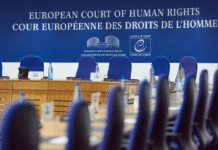A Guinean physician who has lived in Turkey for 14 years and is married to a Turkish citizen is facing deportation under a national security order, despite having no criminal charges against him and being denied access to the evidence used to justify the decision, the Birgün daily reported on Tuesday.
Dr. Sekouba Conde, 53, applied on May 8, 2023, to renew his family residence permit at the Istanbul Provincial Directorate of Migration. His application went unanswered for nearly a year. After inquiries by his legal team, the request was ultimately rejected.
Following the rejection, Conde submitted a new application to a local migration office in Esenyurt, a district of Istanbul, where applications for residence and work permits are processed. The next day he was summoned and informed that he had been flagged with a G‑82 code — an administrative classification used for individuals allegedly engaged in activities against Turkey’s national security. He was also issued a five‑year entry ban.
Conde was then taken to the Kıraç Police Station. In a statement given there he said: “I have no connection to any terrorist group. I have not made any negative posts about Turkey on social media.” He also stated that he entered Turkey legally in 2011 and married a Turkish citizen in 2015.
He was later transferred to the Binkılıç Repatriation Center, and then to the Pehlivanköy Repatriation Center in Kırklareli province. During his time in custody, court filings indicate that other detainees harassed him for being Christian. Officials reportedly advised him to “voluntarily accept deportation” for his own safety.
Authorities initially cited unspecified social media activity as justification for the G‑82 code, but his lawyer, Cafer Çakmak, said no such content was ever included in the case file. When legal proceedings began, officials then claimed there was a classified intelligence report from Turkey’s National Intelligence Organization (MİT), but that report was never shown to the court or defense lawyers.
The Ankara 1st Administrative Court later rejected the lawsuit filed to challenge the G‑82 designation, citing the existence of the undisclosed MİT report. The decision, issued without the report ever being included in the case file, is now under appeal.
Following that ruling, the Istanbul 1st Administrative Court on September 12 upheld the deportation decision. The court reasoned that since the Ankara ruling had already found the G‑82 code to be legally valid, the deportation based on that same code — under Article 54/1‑d of Turkey’s Law on Foreigners and International Protection — did not violate the law. The ruling effectively confirmed the government’s actions.
Conde’s legal team also challenged the administrative detention order issued while he was held in removal centers. The Istanbul 2nd Criminal Court of Peace ruled that the G‑82 code alone did not justify administrative detention and noted the absence of any supporting documentation or criminal proceedings.
This is not the first time Dr. Conde has faced deportation proceedings. In 2017 police raided his home after his wife, Ayşe Lerzan Caner Conde, was arrested on charges of membership in a terrorist organization and put in pretrial detention. Dr. Conde, who attempted to intervene, was also taken into custody and later transferred to the Harmandalı Repatriation Center in İzmir, where he was held for more than eight months.
The couple co‑founded a migrant support organization serving African communities in Turkey.















